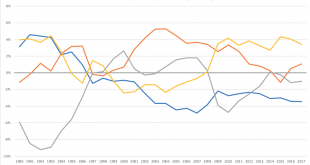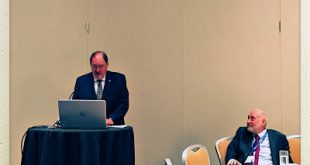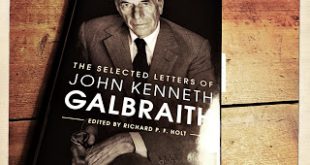From Geoff Schneider ICAPE's Executive Director: Proposals for papers, workshops and panels at ICAPE are due Tuesday, September 4th. I hope you can join us for this conference that brings together all of the heterodox perspectives.Information below. International Confederation of Associations for Pluralism in Economics (ICAPE) Call for Papers, Panels and Workshops Agnes Scott College, Atlanta, GA January 3, 2019, 7:00 AM to 5:00 PM Gender, Race, Class and Crises:...
Read More »Value Creation vs Value Extraction in Today’s Economy
Book Review Mariana Mazzucato. The Value of Everything: Making and Taking in the Global Economy. Allen Lane. 2018. The playwright Oscar Wilde quipped that a cynic is a person who “knows the price of everything and the value of nothing.” As Mariana Mazzucato argues in her important and stimulating new book, “The Value of Everything,” that adage could be applied to the vast majority of mainstream, neo-classical economists. Mazzucato is the author of the previous bestseller, The Entrepreneurial...
Read More »A crisis gone to waste
[embedded content] My interview with INET from January 2017 at the ASSA meetings in Chicago. From the INET link:After the Great Depression, global capitalism underwent serious reform. Why didn’t that happen after 2008?Matias Vernengo, Professor of Economics at Bucknell University, explains how a crisis can reveal that the dominant neoliberal orthodoxy is in fact based on a shaky theoretical foundation. But for new economic thinkers to capitalize on that requires a clearly articulated...
Read More »An Analysis of Financial Flows in the Canadian Economy
An essential but perhaps overlooked way of looking at the economy is a sector financial balance approach. Pioneered by the late UK economist Wynne Godley, this approach starts with National Accounts data (called Financial Flow Accounts) for four broad sectors of the economy: households, corporations, government and non-residents. Here’s how it works: in any given quarter or year each sector can be a net borrower or lender, but the sum of the four sectors’ borrowing/lending must equal to...
Read More »Rethinking the economics of extreme events
Review of Worst-Case Economics: Extreme Events in Climate and Finance by Frank Ackerman *** Long ago economics was termed “the dismal science,” but in recent years that title has arguably been passed on to climate science, with its regular and dire warnings that humanity needs to rapidly transition off of its use of fossil fuels for energy. In the face of such calls to action, progress has been frustratingly slow. The 2015 Paris Agreement offers some hope, as does the small-but-growing share...
Read More »Roger Farmer — Standing on the Shoulders of Giants
The divergence of neoclassical economics from classical ideas does not have to do with mathematical formalism. It occurs when Walras and Pareto introduced us to homoeconomicus, a human being who springs fully formed into the world at the age of 18 with a complete understanding of his preferences over every conceivable outcome in his extensive choice set. That step enabled us to understand why markets are better ways of organizing economic activity than any other known form of social...
Read More »On mainstream Keynesianism
Looking up to Galbraith The ASSA Meeting was this last weekend in Philadelphia. It was the bomb... cyclone (Nate Cline's joke; I'm sure many others too came up with that one). I don't have much to report actually. I did participate in one section, and will post a link to a preliminary version of my paper soon. I was at the Economists for Peace and Security (EPS) dinner, that honored Jamie Galbraith. This blog was named Naked Keynesianism, as you may know, because years ago Fox News...
Read More »Michael Roberts — The economics of Luther or Munzer?
History lesson. Trading one dogmatism for another?Michael Roberts BlogThe economics of Luther or Munzer?Michael Roberts
Read More »Jason Smith — On these 33 theses
The other day, Rethinking Economics and the New Weather Institute published "33 theses" and metaphorically nailed them to the doors of the London School of Economics. They're re-published here. I think the "Protestant Reformation" metaphor they're going for is definitely appropriate: they're aiming to replace "neoclassical economics" — the Roman Catholic dogma in this metaphor — with a a pluralistic set of different dogmas — the various dogmas of the Protestant denominations (Lutheran,...
Read More »Sunday Reading: Economic Letters of Note
Rick Holt edited a superb book with John Kenneth Galbraith's letters from the 1930s until his death in 2006. He wrote to everybody, friend and foe, and displays his usual wit. Here I reproduce parts of his letter to Joan Robinson, that he wrote after having invited her to give the Ely Lecture (subscription required).The letter is from January 12, 1972. It says:Dear Joan: Many thanks for your note. If the meetings were slightly less stuffy and neoclassical than usual, it was owing more...
Read More » Heterodox
Heterodox



